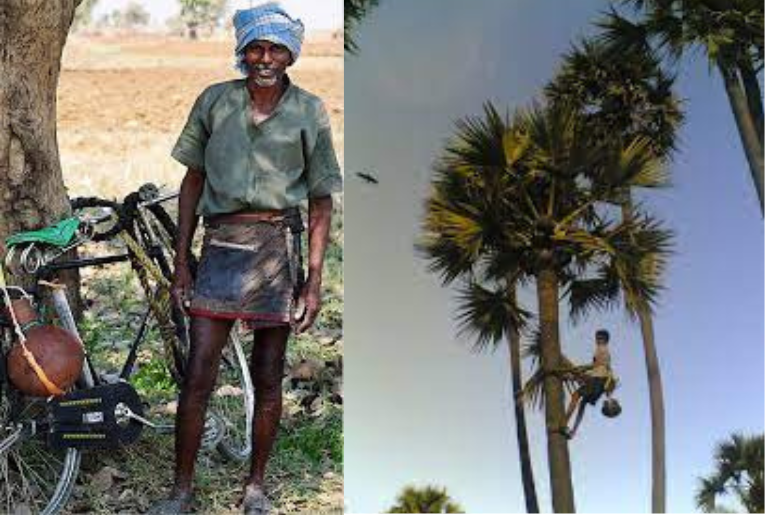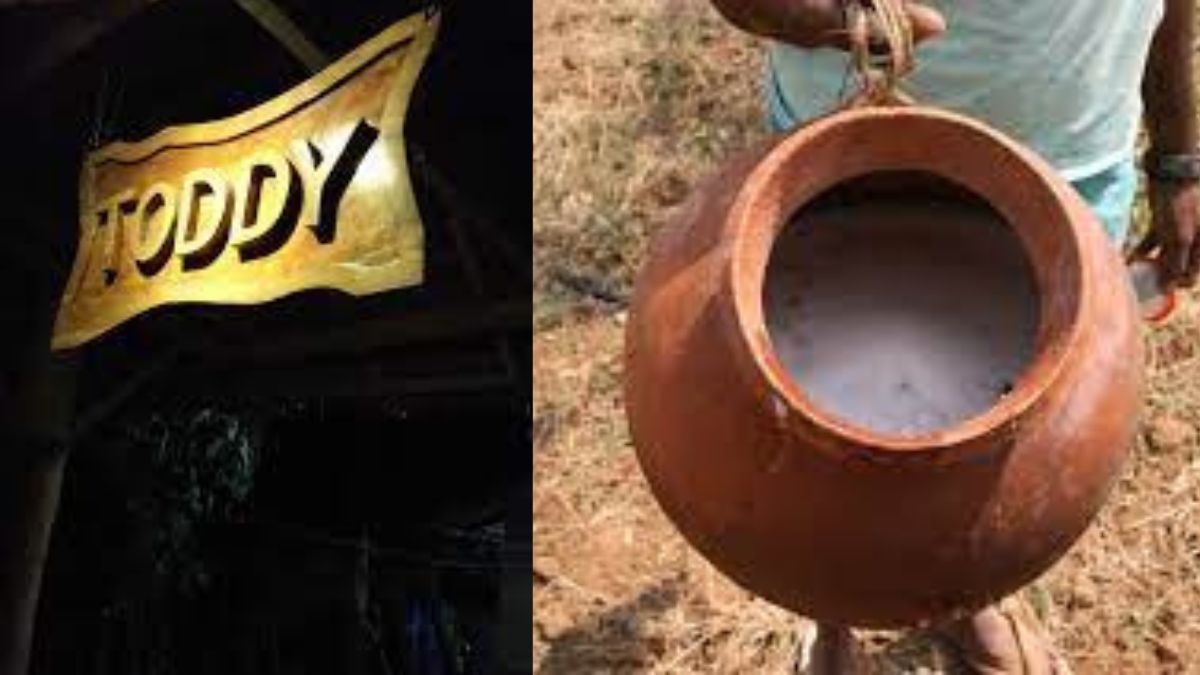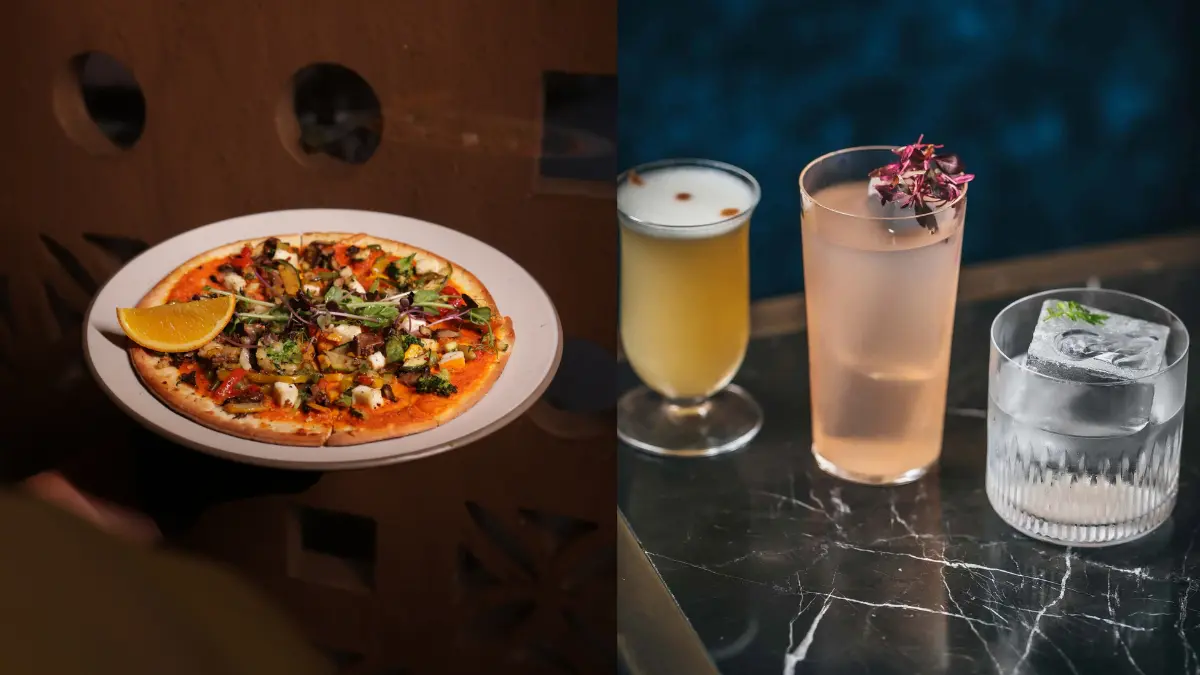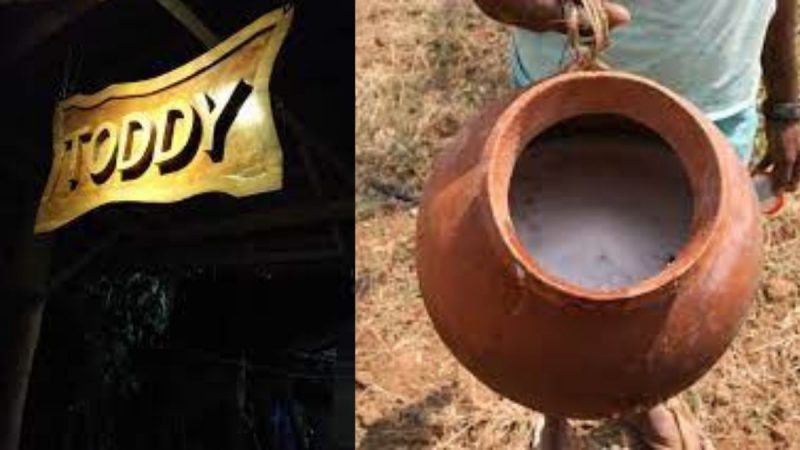Kerala’s landscape is dotted with quaint toddy shops, where a unique beverage, the Kerala “Kallu” which became modern coconut vodka reigns supreme. This mildly alcoholic concoction contains around eight per cent alcohol. It is extracted from the sap of coconut or palm flowers and is more than just a drink; it’s woven into the state’s social fabric. Colonial influence and social reforms led to a negative perception of toddy, associating it with social ills like alcoholism. This resulted in stricter regulations and a decline in its traditional role as a social lubricant.
The “Kallu” Tapper Life

Traditionally, toddy tappers, called “Ettukayas,” climb palm trees without any safety gear, showcasing exceptional skill and courage. This practice, though declining due to safety concerns, remains an integral part of the toddy-making process. Generations have passed down the skill of toddy-tapping. The rhythmic tapping of the “aarackal,” a sharp knife used to collect sap, is a practised art. Tapping families, known as “maniyans,” inherit this knowledge, ensuring the drink’s continuity.
The life of a toddy tapper is one of arduous physical labour. They ascend tall trees before sunrise, meticulously collecting sap without harming the palms. This skill and dedication are crucial for sustaining this unique tradition.
Also read: Not Just Varkala, 5 Laidback Beach Towns To Visit In Kerala
Beyond Intoxication: A Culinary Accompaniment

Toddy shops are not merely drinking establishments. They serve as local hubs, where patrons relish “kallu” alongside traditional fare like kappa (mashed tapioca) and spicy fish curries. The beverage’s subtle sweetness complements the fiery flavours, creating a delightful culinary experience.
The entire toddy-making process is eco-friendly. Palm trees require minimal water, and the naturally fermented toddy doesn’t involve harmful chemicals. This focus on sustainability adds another layer to Kerala’s distinctive toddy culture.
Historically, toddy shops transcended social barriers. People from diverse backgrounds gathered and conversed over “kallu,” fostering a sense of community. While this aspect is less prominent today, it remains a notable facet of toddy culture.
The Enthrallment of Foreigners

Toddy’s exotic nature draws the attention of tourists to the Kerala “kallu” which became modern coconut vodka. Witnessing the entire process, from tapping to consumption, offers a window into Kerala’s distinctive cultural heritage.
Tourists get a chance to observe the camaraderie and conversations that flow freely over shared glasses of toddy. This provides valuable insight into the laid-back social culture of Kerala. Even through basic interactions, allows tourists to witness the human element behind the production.
Understanding the livelihood that toddy tapping provides fosters a sense of cultural respect and appreciation. It’s a chance to witness age-old traditions, explore unique culinary experiences, and gain a deeper understanding of the social fabric that binds Kerala together.
Also Read: What Is Toddy? Here’s How It Is Consumed In Different Parts Of India
Cover Image Courtesy: Wikimedia Commons
For more such snackable content, interesting discoveries and the latest updates on food, travel and experiences in your city, download the Curly Tales App. Download HERE.
First Published: March 13, 2024 4:10 PM




